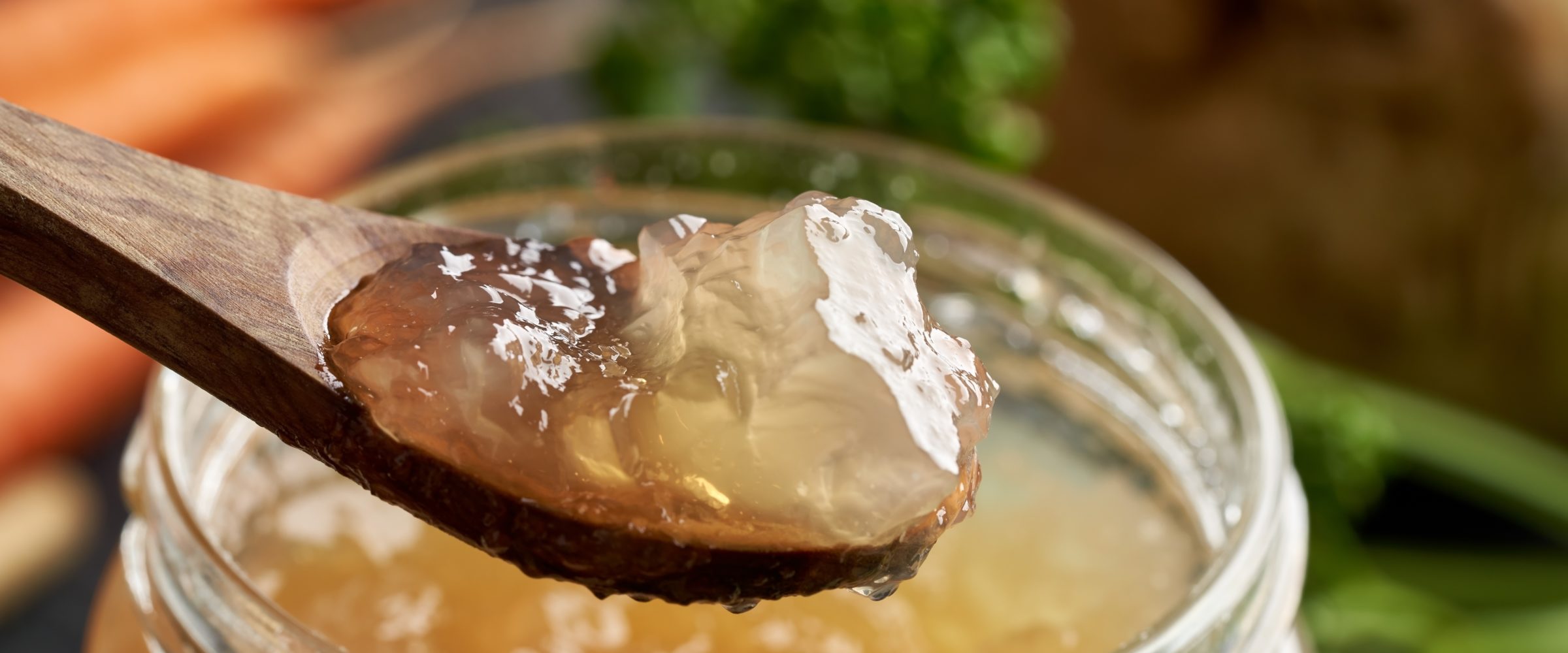4 min|Integrative
Collagen: Nature's Elixir for Health and Beauty
Wellness, Beauty, HealthUnlocking Wellness with Collagen
Here at Integrative, we are big fans of collagen. It is a well-tolerated source of protein, free of common allergens such as whey and soy. It is easy to consume, and we’ve seen great benefits with consistent consumption, as part of a complete health plan.
What is Collagen?
Collagen is a protein, made of many different amino acids in a triple helix formation. There are 16 types of collagen, but types I-III are most common in the body. Predominantly, collagen is composed of the amino acids proline, glycine, hydroxyproline. Many tissues in our body consist largely of collagen, including bones, skin, nails, and hair.
The Incredible Benefits of Collagen
You may have noticed that collagen supplements are everywhere. But what’s the big idea, and why now? We used to gain collagen from the type of animal products we consumed, particularly animal skin, tendons, ligaments, and bone. As our diet shifted towards muscle meat and away from what was considered less aesthetically pleasing and desirable cuts of meat, our diet lost its richest source of collagen. For a while, skinless boneless chicken breasts reigned supreme.
Recently, however, with a shift towards Paleolithic and primal nutrition, there has been a renewed recognition of the benefits of collagen, resulting in a resurgence of nose-to-tail cuisine, as well as collagen and gelatin supplementation. In turn, we are reaping the wide-ranging benefits of collagen:
- Collagen supplementation improves skin elasticity, reduces nasolabial folds, skin dryness, wrinkles (1,2)
- Collagen ingestion increases hyaluronic acid, a moisture retaining acid naturally found in the skin (3)
- Glycine, highly present in collagen, may reduce gastrointestinal inflammation, thereby improving digestion and intestinal permeability (‘leaky gut’) (4,5)
- In animal models, reduction in joint swelling and tender joints in cases of Rheumatoid Arthritis was observed (6,7)
- In animal models, collagen supplementation has led to an increase in bone density (8)
- Supplementation with Biocell, a type II collagen supplement, improved osteoarthritis symptoms including pain (9)
- Six-month usage of collagen led to an improvement in skin appearance in patients with moderate cellulite (10)
- Keratin, minerals, and collagen are required to grow hair and nails, leading to the theory that collagen supplementation supports hair and nail growth
Due to these various benefits, collagen and collagen-based foods can be considered helpful additions for anyone struggling with digestive symptoms, looking to boost their protein intake, or eager to improve the health of their skin, nails, and hair. Almost anyone can benefit from more collagen, providing you do not have an allergy to the source of collagen or health conditions that interfere with protein clearance (such as kidney issues).

How to Consume Collagen Supplements
Unfortunately, collagen molecules are too large to be absorbed via the skin. Any product that implies it is providing collagen topically is misleading. The best way to gain the benefits of collagen is to ingest it, either through food sources or a supplement. The easiest and most traditional way to increase collagen levels is through animal products, particularly skin, bone, ligaments, seafood, and organ meats.
Your grandmother was right, bone broth is healthy; boiling bones extracts collagen, creating a rich, hearty, mineral-rich broth. The thick gel that appears on the top of well-cooked bone broth? That’s gelatin, a cooked form of collagen. When making bone broth, add meat scraps, tendons, chicken feet, fish heads, and skin to increase the gelatin content.
A touch of acid helps extract the collagen; apple cider vinegar is a great source of acetic acid. Once you’ve got your broth, use it as a base to enrich a variety of foods with nutrients. Bone broth can be used for soup, stew, cooking rice or other grains, and vegetables.
Bone broth has a savoury flavour, making it an ideal component of any meal. However, it does have a strong flavour and, unless you have a pressure cooker, can take hours to make. If you’re looking for a quick, relatively flavourless way to incorporate collagen, there are many collagen peptide (also known as hydrolyzed collagen) powders on the market.
Collagen peptides are heat stable and provide roughly 6g of protein per tablespoon. These powders can be easily added and blended into smoothies, coffee, matcha and other teas. They can also be used to thicken soups and stews or to amp up the protein content of baked goods such as muffins and bread.
Vitamin C is an important cofactor in ensuring proper utilization and integration of collagen. Supplementation with vitamin C can be a helpful addition to enhance the benefits of collagen usage while providing many additional benefits for the maintenance of good health.
Are you looking for support with improving your health and longevity?
Book a consultation with one of our experienced Naturopathic Doctors today!
REFERENCES
- https://www.ncbi.nlm.nih.gov/pubmed/23949208
- https://www.ncbi.nlm.nih.gov/pmc/articles/PMC4206255/
- http://onlinelibrary.wiley.com/doi/10.1111/j.1346-8138.2010.00827.x/full
- https://www.ncbi.nlm.nih.gov/pubmed/12589194
- https://www.ncbi.nlm.nih.gov/pubmed/21628872
- https://www.ncbi.nlm.nih.gov/pubmed/8378772
- https://www.ncbi.nlm.nih.gov/pubmed/9485087
- https://www.ncbi.nlm.nih.gov/pubmed/16308135
- https://pubs.acs.org/doi/abs/10.1021/jf205295u
- https://www.ncbi.nlm.nih.gov/pmc/articles/PMC4685482/
Related Articles

4 min|Dr. Alex Chan
EBOO for Chronic Inflammation: A Natural Approach for Systemic Relief
Regenerative Medicine, EBOO Therapy
4 min|Dr. Alex Chan
EBOO Therapy for Autoimmune Conditions: Exploring the Potential Benefits
Autoimmune Disease, Regenerative Medicine, EBOO Therapy


